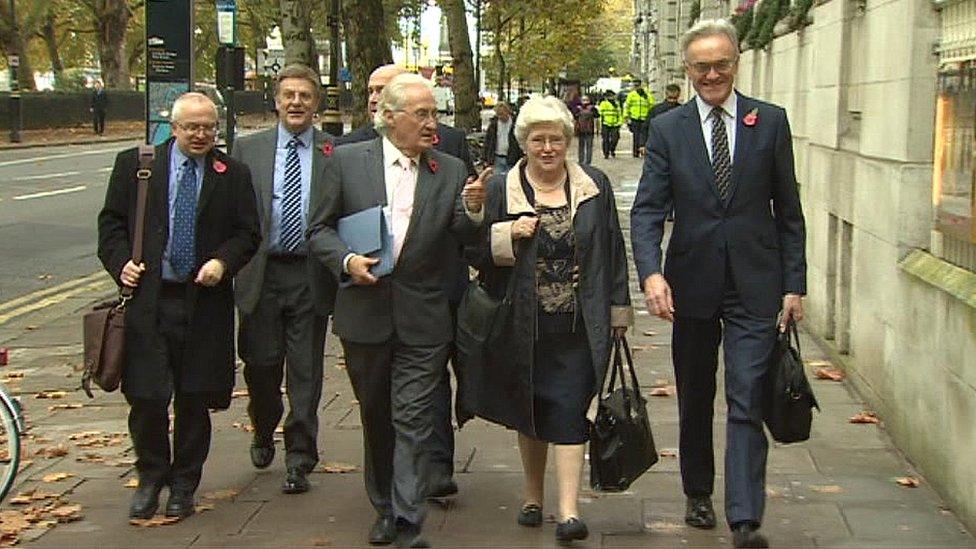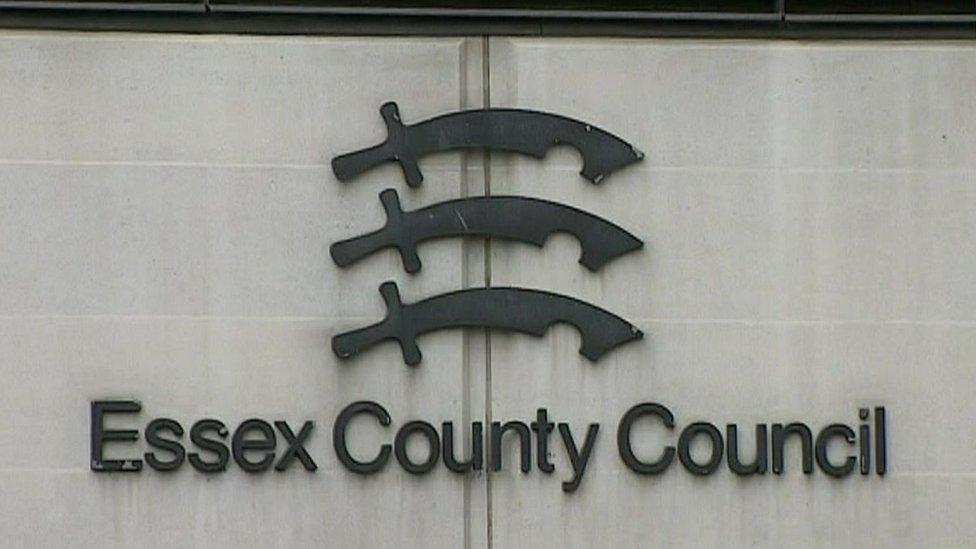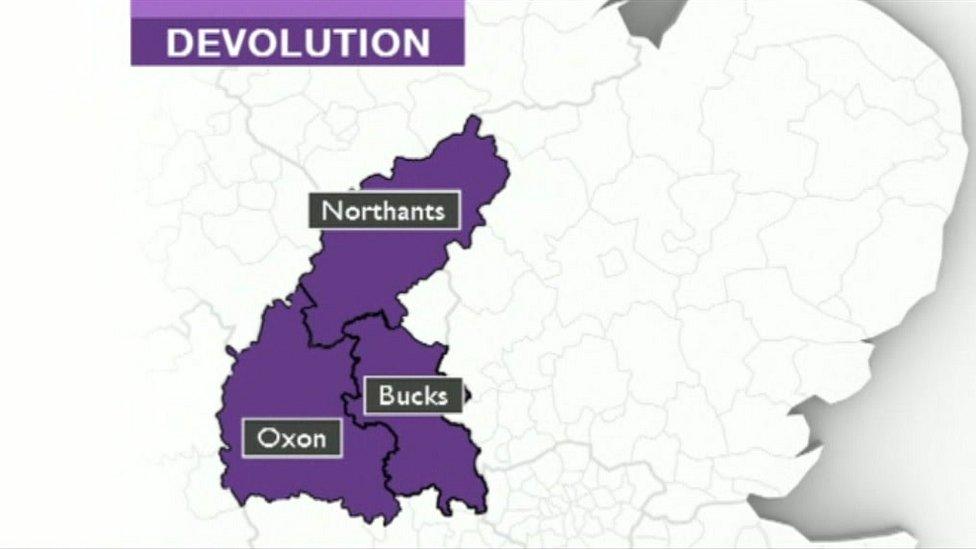Devolution marathon under way in East of England
- Published
- comments

Councillors and business leaders from Norfolk and Suffolk meet the government to discuss their devolution plans
The starting gun has been fired in what promises to be a long race towards devolution in the East of England.
The power to run more of our own affairs is within reach if only our local authorities grasp the nettle. Some are. Some aren't.
David Cameron began the task of reshaping local government in England after the Scottish Referendum in 2014.
He pledged more powers for English authorities, as well as more independence for those north of the border.
And even though the legislation to set this in place is still going through parliament, the race is now on to form the new authorities that will grab that power - and it's set to be more of a marathon than a sprint.
Councillors in Norfolk and Suffolk are already pounding that long road and travelled to Westminster to lay their cards on the ministerial table.
The 16 councils in the two counties want to join forces to become a combined authority with more devolved power from central government and a bigger budget.
New responsibilities would be part of the devolution deal - including housing, further education and employment. The probation service and transport could also be added to their list.
With Norfolk and Suffolk keen to join forces, it's now all about getting the details of their new authority right.
Suffolk County Council leader, Colin Noble, said: "It is an opportunity for us to take more local control, to make decisions for ourselves rather than decisions being taken in Whitehall.
"And what we know is that when you take more locally-based decisions, quite often they are better decisions."
Norfolk County Council leader, George Nobbs, said: "There is no question of authorities being abolished or merged.
"This is case of a number of authorities working together, combining for a purpose to do something but not combining their membership or their democratic mandate."
Plans for Essex
But in Essex, they are still trying to work out who is on which team.
A bid to set up a Greater Essex combined authority could see all 15 councils club together to provide services for the whole county. But not all councils are fully on board.

Not all councils in Essex are in agreement with devolution
Roy Whitehead, leader of Chelmsford City Council, has reservations, even though the city has registered an interest in joining Greater Essex.
"I am not convinced as yet, especially in financial matters, that there is actually a benefit in this for the residents of Chelmsford," he said.
Meanwhile, the unitary authorities of Southend and Thurrock are considering doing their own thing - and setting up a breakaway team with the possibility of joining forces with Castle Point, Rochford and Basildon councils.
Over in the west of the region, Northamptonshire, Buckinghamshire and Oxfordshire have already unveiled the branding for the new authority they want to set up - to be called England's Economic Heartland.
They claim to be at the centre of the UK's global competitiveness in science and technology, with an economy worth £48bn a year.
Jo Lappin, chief executive of the Northamptonshire Enterprise Partnership, said: "For me, devolution is a demonstration to government of places that have vision, collaborative leadership and ambition.

Northamptonshire, Buckinghamshire and Oxfordshire want to share resources
"We have got a huge demand for public services and a rapidly growing population and that means we have really got to work together to deliver the best possible services."
The three authorities are also in talks with all the councils in Bedfordshire and Milton Keynes, to expand their already large bid.
Peter Marland, leader of Milton Keynes Council, views his authority as the "big boy in the playground" and he's keen to share any economic growth the devolution deal might bring.
"So while Milton Keynes is the jewel in the crown, this is about making sure that the benefits go right throughout the region," he says.
There is a still a long way to go down the devolution road, but the wheels in the East are beginning to turn.